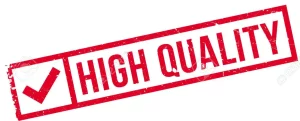- Premium Academic Help From Professionals
- +1 757 528 8682
- support@standardwriter.com
Analysis of International Business Theory
Analysis of International Business Theory
|
Order Number |
636738393092 |
|
Type of Project |
ESSAY |
|
Writer Level |
PHD VERIFIED |
|
Format |
APA |
|
Academic Sources |
10 |
|
Page Count |
3-12 PAGES |
Instructions/Descriptions
Analysis of International Business Theory
Company Description
Link: https://www.wellsfargo.com/about/
Wells Fargo and Company tends to be an American Multinational financial service organization with its corporate headquarters in San Francisco, California, with operational headquarters located in Manhattan and the managerial offices distributed throughout the United States as well as globally.
The organization focuses on offering banking services, investment and mortgage products, and services, credit card services as well as personal, small business, and commercial financial services (Wells Fargo, 2021). The organization has more than 7200 locations, more than 13000 ATMs, online and mobile banking, and offices in approximately 31 countries.
Wells Fargo was founded in the year 1852 by Henry Wells and William G. Fargo who developed an innovative startup to aid clients to develop businesses as well as manage their finances in the rapidly changing world.
Wells and Fargo were dedicated to identifying creative solutions as well as advocating for more inclusive communities and this continues to be the inspiration for the generations of change-makers to develop the history of what’s next (Wells Fargo, 2021).
The reputation of Wells Fargo as one of the most significant organizations across the globe in regards to integrity as well as principled performance is mainly dependent on the organization focusing on always doing the right thing, in the most appropriate approach, and also complying with rules and regulations which govern the organizational business.
Additionally, the organization has also been able to earn trust from its client by behaving in an ethical way and also holding all the team members as well as directors accountable for the decision they make and the actions they take (Wells Fargo, 2021).
The organization prioritizes the building of trust from its client population, community partners, team members, regulators, shareholders, government officials, and other related stakeholders to be able to remain competitive in its field of business.
The field of business continues to change and Wells Fargo focuses on continuously improving its business by making things right and transforming itself to meet the ever-changing financial needs of its diverse client population around the globe (Wells Fargo, 2021).
Through making significant progress, the organization does not stop seeking opportunities to improve its business, to be in a position to effectively achieve its vision which is “To satisfy our customers’ financial needs and help them succeed financially.” Fundamentally, the organization tends to echo its mission statement but stresses adding a sense of leadership to make it an effective vision statement (Wells Fargo, 2021).
On the other hand, the mission statement of Well Fargo is “Helping Customers Succeed Financially,” the precision of this mission statement provides an indication of how specific and clear the organization is when it comes to mandating and prioritizing the financial needs of its clients’ population.
Additionally, through its core values “what’s right for customers, people as a competitive advantage, ethics, diversity and inclusion, leadership,” Wells Fargo supports its vision and mission statements by revealing what the organization considers to be crucial for the overall success of its business operations (Wells Fargo, 2021).
Executive Summary
International business does only enhance financial and economic interdependence among the nations around the globe but also tends to promote the integration of political and social factors. Moreover, the contemporary factors that promote the need for and shape globalization are financial, technological, economic, social and political aspects.
It is quite important to attain an adequate understanding of the potential sources of globalization because they tend to have a diverse contribution which makes it not uniform across the globe. Additionally, the intensity, as well as the extent of international business, tends to differ across the various regions and nations hence providing an indication that the various aspects impacting international business tend to have diverse effects on the economy’s the developed and developing nations due to the structural condition to the countries.
International business or globalization is a significant part of the global economic activity, with projections arguing that within the next several years the total dollar value of international trade will be much bigger than the total dollar value of trade within borders with all nations combined.
Additionally, through the aid of international business or globalization, the economies around the world have become more integrated as this trading approach focuses on promoting interconnectivity, and interdependence through the establishment of socio-cultural, political as well as economic relations across diverse geographical distances.
Wells Fargo is a financial organization that has attained a significant reputation while operating on the international market. However, the organization was involved in the fake bank accounts scandal in 2020 and this has significantly impacted the organization’s participation in international business and trust from its diverse stakeholders.
Sources identified that the Wells Fargo organizational culture was identified as unethical following the fake bank account scandal and as a result despite the scandal being resolved the organization still suffers from mistrust which leads to the reduced business turnover experienced by the organization.
Thus, for Wells Fargo to be in a position to effectively participate in the international markets it needs to develop an organizational culture that comprises a strong and ethical set of beliefs that are significantly supported by the organization’s business structure and strategy.
Introduction
With the advancement of technology, it has been quite easy for all business sizes to profit from the numerous advantages of international trade. Often by seeking international ventures an organization can achieve significant opportunities to enhance its business operations as well as develop a reputable brand image.
Fundamentally, the international business may be described as the act of trading products, services, capital, technology, and knowledge across national borders and on an international scale (Shenkar et al., 2014). Often this comprises cross-border transactions of product and service among two or more nations. International business is also termed globalization.
However, there are several benefits of an organization engaging itself in international business. The benefits include the ability to increase its revenue as the population of the target client increases (Naz & Ahmad, 2018).
This means that every nation that an organization adds to its list tends to open a new path for the business to grow hence increasing its revenues. Another significant benefit for engaging in international business is the ability to enhance the organizational reputation as achieving success in a single nation may influence success in the other adjacent nations hence raising the organizational profile within its market niche.
Also, through enhancing the organizational reputation the company’s credibility tends to increase both in the globe and the local markets (Shenkar et al., 2014).
Another major benefit of engaging in international business is the ability to specialize in particular goods and services as the international markets provide the organization with new avenues that tend to spark innovations and creativity which are aimed at promoting the company’s products and services.
Moreover, international business or globalization is a significant part of the global economic activity, with projections arguing that within the next several years the total dollar value of international trade will be much bigger than the total dollar value of trade within borders with all nations combined (Naz & Ahmad, 2018).
Furthermore, through opening up, significant economies such as Russia and China among others which had been closed off to the outside investors as well as producers have contributed to the rapid growth of globalization (Shenkar et al., 2014).
Additionally, through the aid of international business or globalization, the economies around the world have become more integrated as this trading approach focuses on promoting interconnectivity, and interdependence through the establishment of socio-cultural, political as well as economic relations across diverse geographical distances.
Additionally, international business does not only enhance financial and economic interdependence among the nations around the globe but also tends to promote the integration of political and social factors. Moreover, the contemporary factors that promote the need for and shape globalization are financial, technological, economic, social, and political aspects.
It is quite important to attain an adequate understanding of the potential sources of globalization because they tend to have a diverse contribution which makes it not uniform across the globe (Naz & Ahmad, 2018).
Additionally, the intensity, as well as the extent of international business, tends to differ across the various regions and nations hence providing an indication that the various aspects impacting international business tend to have diverse effects on the economy’s the developed and developing nations due to the structural condition to the countries.
Discussion and Analysis
The increasing need for any organization across the world to participate on the international business platform tends to cause increased competitiveness in this area. Thus, most of the organization’s already participating in international business are forced to develop new approaches to remain relevant and competitive.
For an organization to be able to achieve a successful entry into the international market there several essential aspects that it needs to put into consideration before venturing into the international business such as cultural differences, ethical approaches, global marketing approaches among others.
Wells Fargo is a financial organization that has attained a significant reputation while operating on the international market. However, the organization was involved in the fake bank accounts scandal in 2020 and this has significantly impacted the organization’s business and trust from its diverse stakeholders.
According to data released by Wells Fargo it indicated that the fake bank account scandal contributed to new consumer checking account reducing by approximately 41% by November 2020 as well as consumer credit cards reduces by approximately 45% (Maxfield, 2016).
Thus, to be in a position to rebuild trust in the international market Wells Fargo needs to restructure its international business approach by focusing on several aspects mainly the cultural difference and ethics. These two aspects will enable the organization’s client population to trust and feel free to conduct business with the organization.
Culture is mainly described as the shared norms and values within the organization (“Special issue on international marketing, strategic orientations and business success,” 2010). Also, it tends to be a reflection of customs, beliefs, traditions, and religions of a specific population.
Culture tends to be quite an essential tool to conduct business in both the local and the international markets because it aids the organization to develop products and services that are in alignment with clients’ beliefs, language, culture, or nature. The Wells Fargo organization culture was identified as unethical following the fake bank account scandal and as a result despite the scandal being resolved the organization still suffers from mistrust which leads to reduced business turnover (Maxfield, 2016).
Ethics of the business and social responsibility contributes significantly to developing an effective organizational culture as well as brand equity. This means that if one aspect is not effectively addressed an organization may not be able to develop a culture that promotes its image and business.
For instance, in the Wells Fargo situation, the organization was indicated to have poor business ethics and as a result, allowed the employees to cheat to meet the set goals. Thus, the top management needs to understand that business ethical conduct tends to have a significant impact on the employees as well as the brand attitude compared to the organizational image and the social responsibility activities (Maxfield, 2016).
This means that despite Wells Fargo having CSR programs that promote the well-being of the communities it may not be in a position to cover up for the ethical misconduct it participated in (Bryan, 2016). This is because the CSR tend to aid the communities, social causes among other related social aspects, but for clients whose credit score were compromised due to unethical behaviour suffered from first-hand pain from the organizational brand.
This makes it essential for the organization to develop a more ethical organizational culture to ensure trust, towards the company has been restored. Thus, for Wells Fargo to be in a position to effectively participate in the international markets is to develop an organizational culture that comprises a strong and ethical set of beliefs that are significantly supported by the organization’s business structure and organization (Bryan, 2016).
Through the aid of the new organizational culture, the workforce will be in apposition to understand what the top management requires of them to respond towards any situation, the workforce will develop a belief that their expected response is the most appropriate one, as well as the workforce, will develop an understanding that they will be rewarded from demonstrating and promoting the values of the organization.
Ethics also tends to play a crucial role in international business as it tends to reflect the interests of various organizational stakeholders during the business process. Moral and ethical issues are also essential in global marketing to enable the organization to point out, satisfy as well as be in a position to anticipate the preferences of the client population and the organization’s market aspirations (Lütge & Uhl, 2021).
Often ethical business conduct and corporate social responsibility (CSR) tend to be quite beneficial to the organization’s client population in diverse approaches. The act of business ethics often tends to relate to the approach the organization’s internal culture ensures that ethical behaviours are created based on ethics and compliance.
On the other hand, through the use of the CSR programs an organization can establish as well as manage relationships with a wide range of stakeholders and be able to promote its brand identity. Thus, the CSR programs are not often utilized as aspects of business operation and ethical decision making but as tools to enable the organization to be able to give back to the community (Samiee & Chirapanda, 2019).
In regards to Wells Fargo’s situation business ethics tends to have contributed to the negative business impact of this multinational financial organization. This has contributed to the increase of mistrust of the organization’s business operations from its stakeholders around the globe.
The issue of mistrust for the organization tends to carry significant weight in regards to the success of the business as it risks losing its client to its competitors (Omar, 2009). Thus, Wells Fargo needs to review and improve its business ethics standards to be in a position to rebuild its trust and be able to compete at the global platform.
The organization has been able to develop a major brand identity for itself through its CSR programs that mainly focus on philanthropy activities for different communities around the globe. For instance, in 2018, Wells Fargo donated $444 million to 11,000 nonprofits that supported affordable housing, small business, education and sustainability and provides a report on “Living our Commitment” promising $1 million a day to nonprofits this year.
This demonstrates an excellent commitment to CSR and as a result enabling the organization to remain relevant in the financial field.
Conclusion
International business comprises cross-border transactions of products and services among two or more nations. This business approach tends to be quite beneficial to the organization in diverse ways such as increasing the revenue turnover. Through venturing into international business an organization opens a new path for the business to grow hence increasing its revenues.
International business or globalization is a significant part of the global economic activity, with projections arguing that within the next several years the total dollar value of international trade will be much bigger than the total dollar value of trade within borders with all nations combined.
Additionally, international business does only enhance financial and economic interdependence among the nations around the globe but also tends to promote the integration of political and social factors.
Moreover, factors such as financial, technological, economic, social and political tend to promote the need for and shape globalization. Furthermore, it is quite important to attain an adequate understanding of the potential sources of globalization because they tend to have a diverse contribution which makes it not uniform across the globe.
In addition, the increasing need for any organization across the world to participate on the international business platform tends to cause increased competitiveness in global trade. Thus, most of the organization’s already participating in international business are forced to develop new approaches to remain relevant and competitive.
Wells Fargo is a financial organization that has attained a significant reputation while operating on the international market. However, the organization was involved in the fake bank accounts scandal in 2020 and this has significantly impacted the organization’s participation in international business and trust from its diverse stakeholders.
Sources identified that the Wells Fargo organizational culture was identified as unethical following the fake bank account scandal and as a result despite the scandal being resolved the organization still suffers from mistrust which leads to the reduced business turnover experienced by the organization.
Thus, for Wells Fargo to be in a position to effectively participate in the international markets it needs to develop an organizational culture that comprises a strong and ethical set of beliefs that are significantly supported by the organization’s business structure and strategy.
Recommendations
One significant recommendation is that the Wells Fargo top management needs to enhance the current organizational culture by ensuring that it comprises a strong and ethical set of beliefs that are significantly supported by the organization’s business structure and strategy.
This will ensure that Wells Fargo can rebuild trust and maintain a competitive advantage over other financial institutions on the global platform. Another recommendation is that Wells Fargo needs to promote its business ethics conduct by encouraging its workforce around the globe to always demonstrate ethical conduct and their compliance with the organizational ethical standards.
This will ensure that the clients are effectively met and as a result enhancing their competitive advantage over their competitors in the financial field. Another recommendation is that the Wells Fargo top management needs to set more reasonable and achievable goals to ensures that the employees are not forced to engage in unethical conduct to just meet set goals, while indirectly they are ruining the reputation and integrity of the organization.
This recommendation will enable the employees to remain motivated and be able to achieve both their personal, professional and organizational goals more effectively and as a result, promoting the brand image of the organization. The last recommendation is that Wells Fargo top management needs the entire workforce to develop business approaches that ensure the clients’ financial needs are prioritized and not just focusing on meeting the organizational goals.
This recommendation will ensure that the organization develops new and effective approaches to attract the target clients which will in return enhance the company’s competitive advantage.
References
Bryan, B. (2016, October 14). We just got the first look at how Wells Fargo’s fake-accounts scandal is hurting the business. Business Insider. https://www.businessinsider.com/wells-fargo-business-impact-from-fake-account-scandal-2016-10?r=US&IR=T
Lütge, C., & Uhl, M. (2021). Business ethics in the age of globalization. Business Ethics, 2-23. https://doi.org/10.1093/oso/9780198864776.003.0002
Maxfield, J. (2016, December 30). Wells Fargo’s fake accounts scandal is still having a big impact on business. Business Insider. https://www.businessinsider.com/wells-fargo-fake-accounts-scandal-impact-on-business-2016-12?r=US&IR=T
Naz, A., & Ahmad, E. (2018). Driving factors of globalization: An empirical analysis of the developed and developing countries. Business & Economic Review, 10(1), 133-158. https://doi.org/10.22547/ber/10.1.6
Omar, O. (2009). Ethics and international marketing. International Marketing, 478-506. https://doi.org/10.1007/978-1-137-28789-2_16
Samiee, S., & Chirapanda, S. (2019). International marketing strategy in emerging-market exporting firms. Journal of International Marketing, 27(1), 20-37. https://doi.org/10.1177/1069031×18812731
Shenkar, O., Luo, Y., & Chi, T. (2014). International business in an age of globalization. International Business, 19-36. https://doi.org/10.4324/9780203584866-5
Special issue on international marketing, strategic orientations and business success. (2010). International Marketing Review, 27(5). https://doi.org/10.1108/imr.2010.03627eaa.002
Wells Fargo. (2021). About Wells Fargo. Wells Fargo – Banking, Credit Cards, Loans, Mortgages & More. https://www.wellsfargo.com/about/
Bibliography
Bryan, B. (2016, October 14). We just got the first look at how Wells Fargo’s fake-accounts scandal is hurting the business. Business Insider. https://www.businessinsider.com/wells-fargo-business-impact-from-fake-account-scandal-2016-10?r=US&IR=T
Lütge, C., & Uhl, M. (2021). Business ethics in the age of globalization. Business Ethics, 2-23. https://doi.org/10.1093/oso/9780198864776.003.0002
Maxfield, J. (2016, December 30). Wells Fargo’s fake accounts scandal is still having a big impact on business. Business Insider. https://www.businessinsider.com/wells-fargo-fake-accounts-scandal-impact-on-business-2016-12?r=US&IR=T
Naz, A., & Ahmad, E. (2018). Driving factors of globalization: An empirical analysis of the developed and developing countries. Business & Economic Review, 10(1), 133-158. https://doi.org/10.22547/ber/10.1.6
Omar, O. (2009). Ethics and international marketing. International Marketing, 478-506. https://doi.org/10.1007/978-1-137-28789-2_16
Samiee, S., & Chirapanda, S. (2019). International marketing strategy in emerging-market exporting firms. Journal of International Marketing, 27(1), 20-37. https://doi.org/10.1177/1069031×18812731
Shenkar, O., Luo, Y., & Chi, T. (2014). International business in an age of globalization. International Business, 19-36. https://doi.org/10.4324/9780203584866-5
Special issue on international marketing, strategic orientations and business success. (2010). International Marketing Review, 27(5). https://doi.org/10.1108/imr.2010.03627eaa.002
Wells Fargo. (2021). About Wells Fargo. Wells Fargo – Banking, Credit Cards, Loans, Mortgages & More. https://www.wellsfargo.com/about/
Analysis of International Business Theory
| RUBRIC | |||
| Excellent Quality
95-100%
|
Introduction
45-41 points The context and relevance of the issue, as well as a clear description of the study aim, are presented. The history of searches is discussed. |
Literature Support
91-84 points The context and relevance of the issue, as well as a clear description of the study aim, are presented. The history of searches is discussed. |
Methodology
58-53 points With titles for each slide as well as bulleted sections to group relevant information as required, the content is well-organized. Excellent use of typeface, color, images, effects, and so on to improve readability and presenting content. The minimum length criterion of 10 slides/pages is reached. |
| Average Score
50-85% |
40-38 points
More depth/information is required for the context and importance, otherwise the study detail will be unclear. There is no search history information supplied. |
83-76 points
There is a review of important theoretical literature, however there is limited integration of research into problem-related ideas. The review is just partly focused and arranged. There is research that both supports and opposes. A summary of the material given is provided. The conclusion may or may not include a biblical integration. |
52-49 points
The content is somewhat ordered, but there is no discernible organization. The use of typeface, color, graphics, effects, and so on may sometimes distract from the presenting substance. It is possible that the length criteria will not be reached. |
| Poor Quality
0-45% |
37-1 points
The context and/or importance are lacking. There is no search history information supplied. |
75-1 points
There has been an examination of relevant theoretical literature, but still no research concerning problem-related concepts has been synthesized. The review is just somewhat focused and organized. The provided overview of content does not include any supporting or opposing research. The conclusion has no scriptural references. |
48-1 points
There is no logical or apparent organizational structure. There is no discernible logical sequence. The use of typeface, color, graphics, effects, and so on often detracts from the presenting substance. It is possible that the length criteria will not be reached. |
Analysis of International Business Theory
 |
 |
 |
 |
 |
 |
Place the Order Here: https://standardwriter.com/orders/ordernow / https://standardwrit



